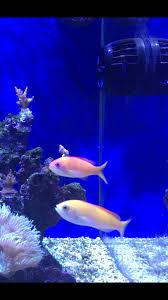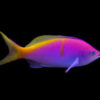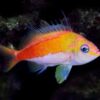Exploring the Fusion of Dragons and Mystical Elements in Classic Chinese Poetry

Dragons, deeply embedded in Chinese culture, represent a blend of mysticism, power, and natural forces. These mythical creatures not only feature prominently in Chinese folklore and art but also occupy a unique place in classical Chinese poetry. In ancient literary works, the dragon is more than just a fantastical figure; it symbolizes various elements of the natural and metaphysical world. From evoking divine power to embodying the complex interplay of the cosmos, the dragon’s presence in poetry intertwines with the mysterious and transcendent, enhancing the spiritual and philosophical depth of Chinese poetry.
This article delves into the way dragons are merged with mystical elements in classical Chinese poetry, exploring how these creatures are used to convey themes of nature, destiny, and the supernatural, creating an atmosphere of mystery and awe.
The Dragon as a Symbol of Mysticism in Classical Chinese Poetry
In classical Chinese poetry, dragons are often depicted as powerful, transcendent beings that symbolize more than just physical might. Their role as spiritual symbols often connects them to the forces of nature, the heavens, and the unknown realms. The dragon, a creature that exists between the physical and divine worlds, represents the mysteries of the universe. As such, poets use dragons to convey themes of the ineffable, the unseen, and the unknowable aspects of existence.
For example, dragons are often linked with the idea of transformation or the bridge between realms—worlds of heaven, earth, and the spirit. This symbolism reflects the mystical qualities of the dragon in poetry, embodying an elusive force that cannot be fully grasped or understood. In many cases, the dragon’s role is to guide or protect, channeling energies that are beyond human comprehension, much like the flow of fate itself.
The Dragon and the Elements of Nature
One of the most prominent themes in Chinese poetry is the connection between the natural world and the divine. The dragon’s interaction with the elements—water, fire, wind, and earth—often takes on a mystical and poetic quality. This relationship is not just symbolic but is intricately woven into the fabric of Chinese poetry, where the natural elements are believed to hold mystical properties that affect human life and fortune.
- Water: In many classical Chinese poems, dragons are connected to water, particularly rivers, lakes, and the sea. Water, in Chinese thought, is symbolic of life’s flow, change, and the mysterious power of transformation. The dragon, as a water creature, commands the flow of rivers and the rains, giving it power over the life-giving forces of nature. In poems, the dragon’s control over water is often presented as a metaphor for the unseen currents of fate, guiding or submerging those who encounter it.
- Fire: Fire represents passion, transformation, and the destructive yet purifying forces of nature. The dragon’s connection to fire in poetry often symbolizes its role as a harbinger of change, sometimes creating chaos to make way for renewal. In some poems, dragons are portrayed as breathing fire, which can destroy or ignite the spirit. This fusion of fire and dragon emphasizes the cyclical nature of existence—the constant transformation between life and death, creation and destruction.
- Wind: The dragon’s role in controlling wind is another example of its connection to mystical elements in Chinese poetry. Wind in Chinese literature often symbolizes change and the unseen forces that drive the course of events. The dragon, being able to summon or ride the wind, represents the manipulation of these forces—how they are beyond human control yet dictate the course of life. This connection between the dragon and wind evokes the idea that, like the wind, destiny is invisible, unpredictable, and often unknowable.
- Earth: Earth represents grounding, stability, and the physical world, and the dragon’s connection to earth is often depicted in relation to mountains and hidden treasures. Poets often used the dragon’s relationship with the earth to symbolize untapped wisdom, the search for enlightenment, and the mystical quality of sacred mountains. This connection highlights the idea that beneath the earth lies the realm of the divine, a place where mysteries are waiting to be uncovered.
Dragons and the Mystical Forces of the Cosmos
In classical Chinese poetry, dragons often transcend their earthly presence to represent cosmic forces that govern the universe. These creatures are symbolic of celestial power and the control of divine energies. As such, the dragon frequently appears as a vehicle of the gods or a link to the heavens, guiding human beings toward enlightenment or mystical revelations.
The dragon’s connection to the cosmos is also seen in its relationship to the emperor, who was traditionally referred to as the “Son of Heaven.” The emperor, symbolized by the dragon, is thought to govern under the auspices of the cosmos, maintaining balance and harmony between the earth and the heavens. This divine authority bestowed upon the dragon ties it closely to the cosmic order in Chinese philosophy, where the dragon acts as a steward of celestial forces.
In poems, the dragon’s role is often associated with cosmic events, such as eclipses, heavenly alignments, or the arrival of auspicious omens. The dragon is seen as a key figure in connecting the mortal world with the supernatural, revealing how the cosmic and human realms are intertwined.
Mysticism in the Poetic Imagery of Dragons
The use of dragons in Chinese poetry is not confined to literal depictions but often extends to abstract and symbolic representations. Poets frequently employ the imagery of the dragon to evoke a sense of awe and wonder, using the creature’s mysterious nature to explore deep philosophical ideas about life, fate, and the unknown.
The dragon is often depicted as elusive and unreachable, embodying the mysterious forces of the universe that humans can only strive to understand. For example, dragons in poems may be said to reside in remote, hidden places, such as the depths of the ocean or the peaks of sacred mountains, symbolizing that the most profound truths are beyond human reach. This mystical quality of the dragon reflects the elusive nature of spiritual enlightenment and the quest for knowledge.
Furthermore, dragons are sometimes used in poetry as representations of inner strength and personal transformation. Just as the dragon is a being of great power and mystery, it is also a symbol of the inner journey that individuals undertake in search of spiritual and personal growth. The dragon, therefore, can serve as a metaphor for the poet’s own pursuit of enlightenment, drawing on the mystical elements of nature, fate, and the divine to shape their path.
Conclusion
Dragons are central to Chinese poetry, serving as powerful symbols that transcend the mundane world and connect poets with the mysteries of the cosmos. Through their association with the elements of nature, the divine, and the supernatural, dragons embody the unseen forces that shape human existence and the universe itself. In classical Chinese poetry, the fusion of dragons with mystical elements creates a rich tapestry of imagery, where nature, destiny, and spirituality converge.
The dragon’s role as a symbol of cosmic power, its connection to the elements, and its representation of transformation and mystery make it an enduring figure in Chinese poetry. As poets continue to explore the mysteries of life, fate, and the divine, the dragon remains a timeless symbol of the unknown, a creature that bridges the gap between the human and supernatural realms.

